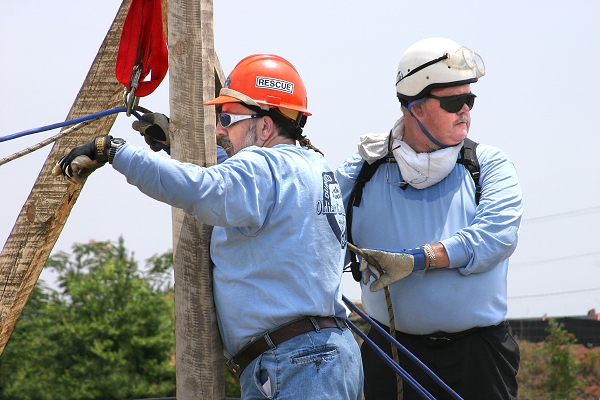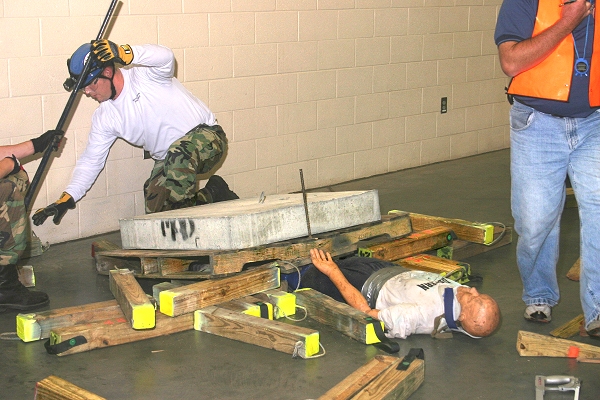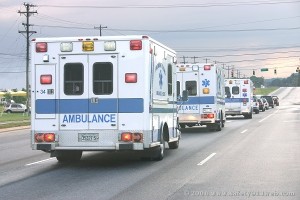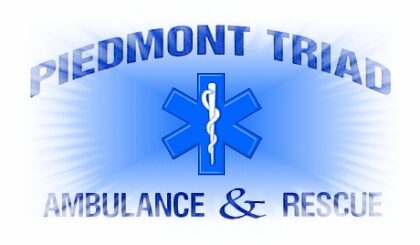
Our members are frequently involved in various training exercises, in order to sharpen and retain their medical and rescue skills. The training classes and seminars which our personnel attend on a regular basis include:
-
Basic First-Aid & CPR Training
This type of training is given to our members who usually are not involved with transporting or caring for patients who need medical attention, such as our Wheelchair Transportation Service drivers, our office staff, etc.
-
Emergency Medical Technician (EMT) Training
[half]Basic EMT training consists of a minimum of 100 hours of classroom and clinical training. It prepares our personnel to treat and care for patients at the Basic Life Support (BLS) level of service. EMT training and certification is regulated by the North Carolina Office of EMS (NCOEMS). EMTs must receive refresher training and be recertified every 4 years.[/half][half_last]

-
Intermediate Level EMT Training
This is our EMT’s highest level of training, and provides them with the ability to perform Advanced Life Support (ALS) tasks such as starting an IV solution while enroute to a hospital. It requires an additional xxx hours of training, and is also regulated by the NCOEMS.
-
High Level Rescue Training
[half]This type of training equips our personnel with the skills they need to rescue patients from difficult environments, such as high rise buildings, construction site accidents, mountain and rough terrain rescues, etc.[/half][half_last]

-
Confined Space Training
[half]

-
Rescue & Medical Equipment Training
Our profession has many highly specialized rescue tools and pieces of medical equipment which must be used in the proper manner in order to achieve the desired results. Our members train regularly on new tools and equipment, and also receive refresher training on older tools and equipment.
-
Specialized Training
Today’s high-tech world presents many new, and often dangerous, obstacles to rescue personnel. Our personnel receive specialized training to help keep them — and their patients — safe. Examples include how to disable ignition systems on cars so they don’t start unexpectedly, how to work safely around automobile air bag systems so they don’t deploy and injure someone, how to approach HazMat scenes, etc.
-
Defensive Driving Training
[half]

-
Training Awards & Recognition
[half]While attending training seminars, our members often enter (and win) competitions. These competitions, while friendly in nature, provide additional serious training opportunities for our personnel. We are very proud of their accomplishments.[/half][half_last]

